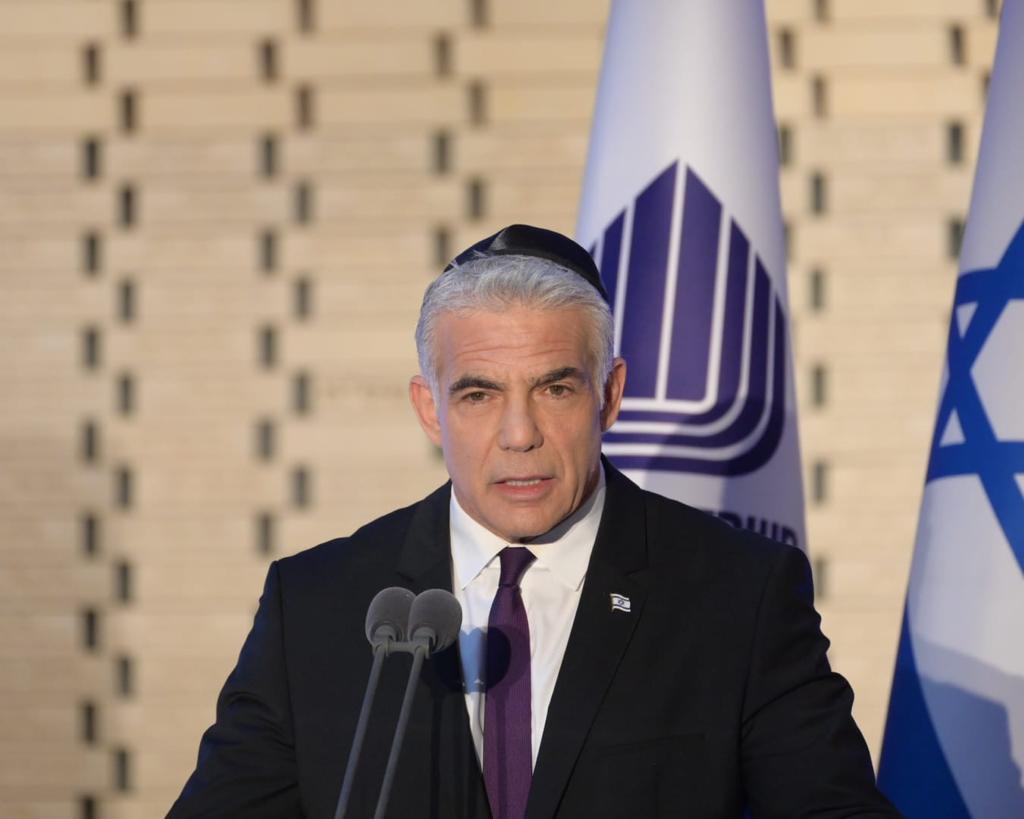
As more headlines are made about Iran’s nuclear program—including the latest revelation that they are conducting advanced nuclear fuel production in an underground facility—Israeli Prime Minister Yair Lapid reiterated that his country is keeping its options open in how to confront the threat. The implication is that the military option remains on the table, even as Israeli news are raising doubts about how Israel can respond at this late stage.
“Yesterday, it was revealed that Iran is enriching uranium in advanced centrifuges in complete contravention of the agreements it has signed. The international response needs to be decisive: to return to the [United Nations] Security Council and activate the sanctions mechanism at full force,” said Lapid in comments published by Israel on Sunday.
“Israel, for its part, reserves for itself full freedom of action, diplomatic and operational, in the fight against the Iranian nuclear program.”
With the nuclear threat in the backdrop, Lapid also highlighted the other threats posed by Iran—including the recent terror threat against Israelis in Turkey. “Israel will not stand idly by while Iran tries to attack us. Our security services know how to reach anyone, anywhere—and they will do just that,” warned Lapid.
The comments come as The Times of Israel ominously reported that Israel has determined it is no longer worthwhile to strike Iran’s nuclear fuel enrichment facilities, with the report—republished from Israel’s Channel 12—indicating Iran already had enough nuclear fuel for at least one nuclear weapon.
Iran has long been working on uranium enrichment and has escalated those efforts in recent years in an effort to blackmail the world into a renewed nuclear accord that would alleviate sanctions on the Islamic Republic. On Sunday, Iran’s PressTV reported that among Iran’s uranium enrichment activities now includes using advanced centrifuges in the underground Fordow facility to enrich uranium to 20%. Uranium is enriched to lower levels for nuclear power plants, to 20% for medical research, and to 90% for weapons-grade nuclear fuel.
The current nuclear crisis with Iran has grown even as the world has repeatedly tried to reach a new nuclear deal with Iran that would see it scale back its nuclear program in exchange for sanctions relief. This follows the withdrawal of the United States under President Donald Trump from the prior, flawed nuclear deal with Iran, with the US reinstituting sanctions when efforts to enhance the original deal failed. In response, Iran has increased its nuclear activity in an effort to drive the US and other world powers back to an agreement, but so far Iran has appeared unwilling to just restart the old accord and the negotiations have stalled.
One of the key nations in the talks is France, and last week Lapid visited French President Emmanuel Macron in Paris. In comments released by Israel, Lapid last Tuesday urged Macron and others to set up a new, stronger arrangement with Iran.
Noting Israel and France “may have disagreements about the content” of a potential nuclear agreement but not the fact that Iran is violating the old one, Lapid highlighted Macron’s own previously expressed parameters for a new deal.
“A deal that is more efficient and better defined, a deal with no expiration date, a deal with coordinated international pressure that would prevent Iran from becoming a nuclear threshold state. You were right then, and you are even more right today,” said Lapid. “The current situation cannot continue as it is.”
Lapid said that, if continued, the current situation will ignite “a nuclear arms race in the Middle East, which would threaten world peace. We must all work together to stop that from happening.”
Like he did on Sunday, Lapid last week also made it clear Israel would respond to Iran’s terror threats: “Israel will not sit back and do nothing, given these repeated attacks.”
In the end, Lapid pointed out that sometimes, even war is necessary.
“This past year, with the war in Ukraine and the terrorism from Iran, we are reminded that not only does democracy protect us, but we must also protect democracy,” said Lapid.
“Sometimes there is no choice but to use the force of war to protect peace.”
(By Joshua Spurlock, www.themideastupdate.com, July 10, 2022)
